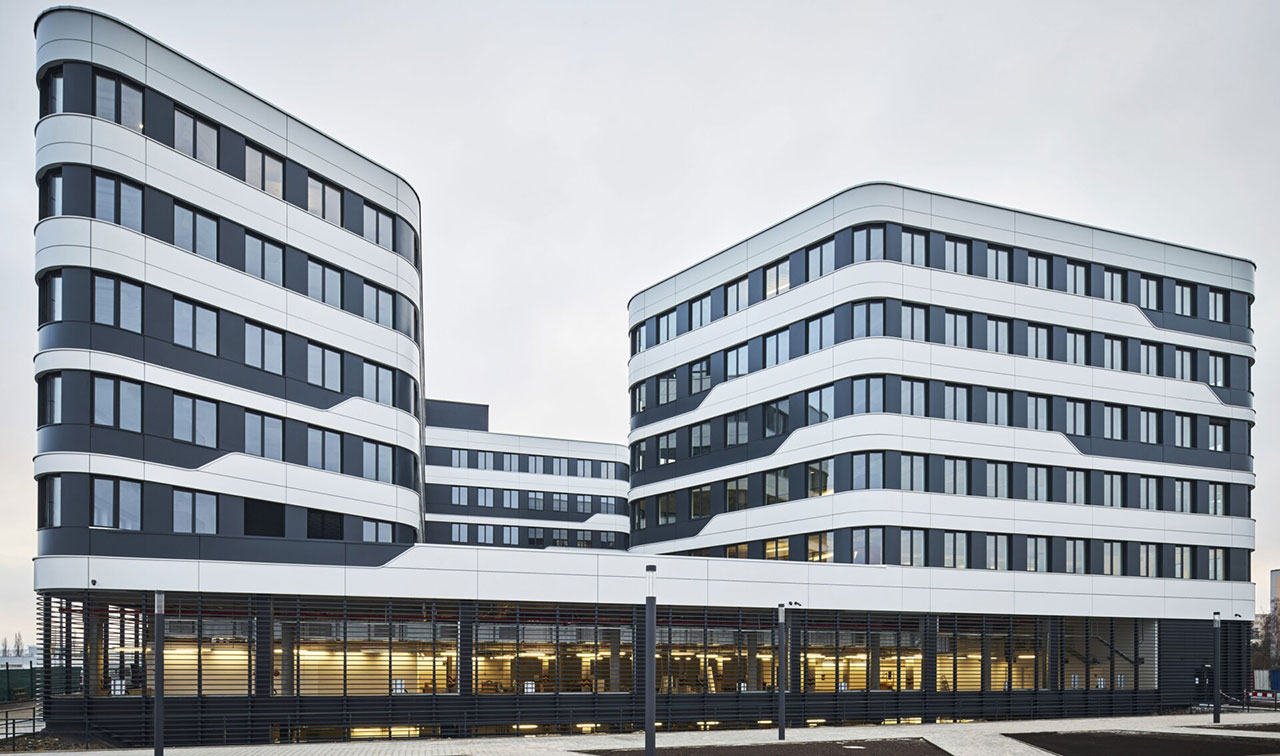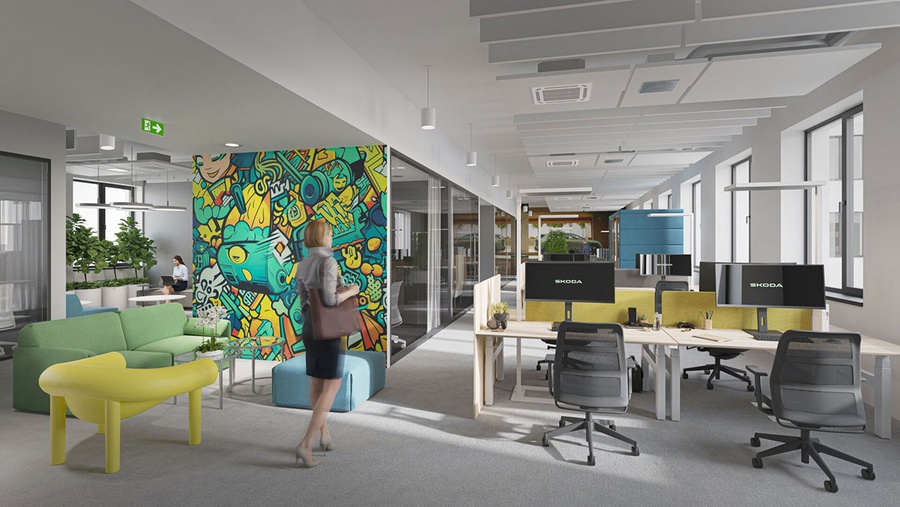After laying the foundation stone in May 2022, Škoda Auto announces the completion of its new headquarters in Mladá Boleslav, the Laurin & Klement Kampus (LKK). The Czech carmaker's first employees will start working at the state-of-the-art facility this month.
The interconnected complex consists of four buildings. It will enable efficient use of synergies and promote direct interaction between different departments and units. The five-storey Laurin & Klement campus will bring together up to 2,000 employees who were previously spread across some 20 buildings in Mladá Boleslav and Prague.
The complex also includes a modular conference area equipped with the latest audio-visual technology, which can accommodate up to 400 people. There is also a restaurant and café for employees and visitors, over 680 parking spaces, 138 electric vehicle charging points and a dedicated bicycle storage area.
With the Laurin & Klement Kampus, the Czech carmaker is introducing contemporary New Work office concepts, tailored to the demands of a modern workforce. The campus is divided into various zones, each designed with a wide range of needs and activities in mind and supported by cutting-edge technology. A key aspect of this modern work environment is desk sharing over 22,800 m² of net office space, allowing employees to use flexible workspaces within their respective areas.
The building is equipped with a 222-panel photovoltaic system with a peak output of 100 kW. It also incorporates technical innovations that will significantly reduce energy consumption. For example, LED technology and intelligent light sensors cut electricity consumption by half compared to conventional fluorescent lighting. The building also features high-efficiency ventilation systems that cool the space overnight and an air conditioning system with an 80% energy recovery rate. Rolling shutters that shield the complex from sunlight further improve efficiency and reduce the building's cooling load by 30%.
The new building is expected to receive a gold certificate from the German Sustainable Building Council. This certification is internationally recognised, setting a global benchmark for sustainable construction practices. It ensures the building meets clearly defined standards of sustainability while allowing for international comparability.
Source: Škoda


